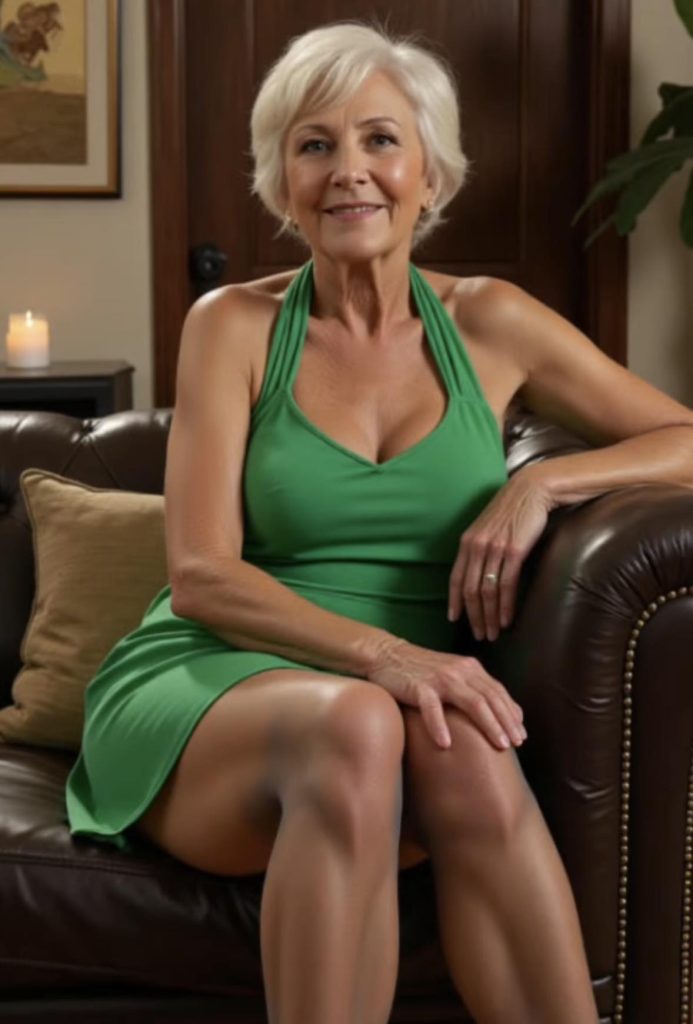When Eleanor turned seventy, something in her voice changed.
Not louder. Not softer. Just… freer.
Her friends noticed it first — the way she no longer spoke like she was afraid of taking up space. Her sentences stretched, lingered, carried warmth that hadn’t been there before. Even her pauses had meaning now.
She started saying things that made people tilt their heads and wonder if she was teasing, or confessing.
“Age doesn’t take away desire,” she said once at dinner, tracing the rim of her wine glass with a slow, deliberate finger.
It wasn’t just the words — it was how she said them. Calm, steady, like she’d waited decades to stop apologizing for wanting to feel alive.
Eleanor had spent most of her life doing what was expected — a wife, a mother, a widow. For years, her world was neat and quiet. The house smelled of lavender and dust. Her laughter was soft, polite. Until one morning, she looked at herself in the mirror and whispered,

“Enough pretending.”
That’s when it started.
She began to speak with a kind of quiet boldness that made even strangers lean closer. When she walked into the café, men who were half her age turned their heads — not because of her beauty, but because of her energy. That calm, magnetic confidence that only comes when a woman stops asking permission to exist.
At seventy, she started saying things she used to only think.
About touch. About freedom. About how being seen could still make her heart race.
Her words weren’t explicit — they didn’t have to be. The way she laughed between sentences, the way her eyes held contact just a second longer — that was the language no one had taught her to speak when she was young.
One afternoon, she met Daniel, a retired photographer who had once worked for travel magazines. He was gentle, curious, with hands that still trembled slightly when he held his coffee. They met often after that — always “by accident,” though both knew better.
Their conversations weren’t about the past. They were about what it meant to still feel alive.
Sometimes she’d reach across the table to adjust his collar, her fingers brushing against the side of his neck.
Sometimes he’d just look at her and forget his next sentence.
People around them saw two seniors having coffee.
But anyone who watched closely could sense the tension in the air — that quiet electricity between two people rediscovering what it means to want, and to be wanted.
Eleanor started saying things like,
“Do you ever miss the way someone used to look at you?”
Or,
“I think the body remembers what the mind tries to forget.”
Daniel would smile, unsure if she was talking about him, or about the man she’d once loved.
She wasn’t chasing romance. Not exactly.
She was reclaiming the parts of herself she’d buried — her humor, her confidence, her sensuality, her right to speak without shame.
At seventy, Eleanor didn’t whisper anymore.
She laughed louder. She took her time. She spoke slowly, letting her words fill the room the way perfume does — not demanding attention, but impossible to ignore.
And when people asked her what had changed, she’d smile, tilt her head slightly, and say:
“Oh, darling. I just stopped caring what anyone thinks.”